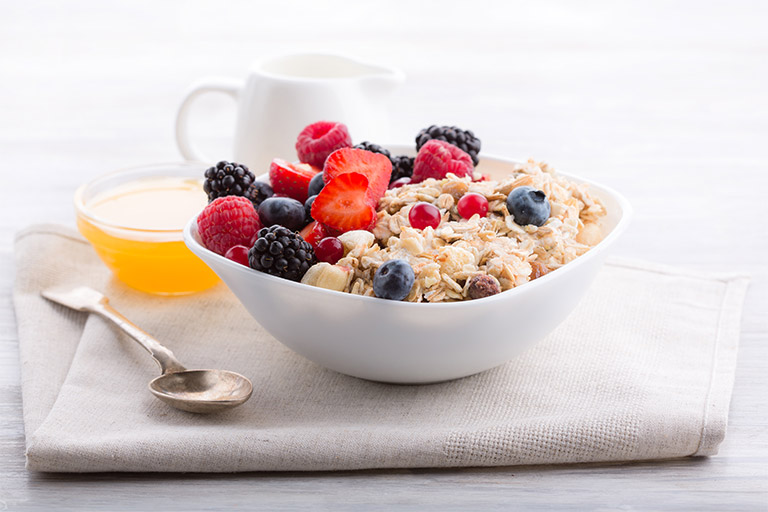6 Surprising Facts About Foods You Didn’t Know
- 19 Apr, 2024
- Written by Team Dr Lal PathLabs
Medically Approved by Dr. Seema
Table of Contents

Food is fuel for sustenance. A healthy diet is vital to a disease-free life. We can classify the vast ecosystem of foods into two categories: regular foods and superfoods. Regular foods are the backbone of daily diets, while superfoods are added for specific dietary goals.
People often look at superfoods with awe and wonder. However, they might be surprised to know the fascinating mysteries hidden in daily foods.
This article delves into six surprising facts about regular foods that are not well known and also explores some essential information about nutrition.
What are Regular Foods?
Regular foods, broadly speaking, are foods that most people consume daily. Nutritionally, a healthy regular diet must include foods from the five major food groups:
- Fruits and Vegetables
Vegetables and fruits are filled with essential nutrients: vitamins, minerals, and fibre. Vitamins and minerals strengthen the immune system, while fibre keeps the bad cholesterol in check.
- Starchy Food
Regular starchy food includes potatoes, rice, bread, etc., and is a source of carbohydrates, calcium, vitamins, and minerals. Carbohydrates are a major energy source for the body.
- Dairy
Dairy (milk, cheese) and its alternatives (soya and nut milk) are good sources of protein and calcium.
- Protein
Protein serves as a vital building block of the body. Pulses, fish, meat, and eggs are some regular foods that contain abundant protein.
- Fat
Fats, while higher in calories, are important for the proper functioning of the body. Some healthy sources of fat include nuts, olive oil, and eggs.
6 Surprising Facts About Foods
- Whole Eggs are One of the Healthiest Foods to Have
Eggs are a great source of complete protein. They also include healthy fats, iron, vitamins, and minerals, making them a nutritional powerhouse. Most of the egg’s nutritional content lies in the yolk.
However, egg yolks have a bad reputation for increasing cholesterol, making people opt for egg whites, thereby reducing their nutritional value.
New research shows that consuming whole eggs does not affect blood cholesterol in most people. Hence, whole eggs instead of egg whites should be consumed for maximum health benefits.
- Low Fat Foods aren’t Always Healthy
Low-fat foods are often promoted for weight loss and disease prevention. The rationale is that fat contains more calories. However, it has been found that low-fat diets do not offer such benefits. Moreover, a low-fat diet lacking other nutritional components can be bad for health.
Instead of migrating to a low-fat diet, a person can benefit more from a high-quality diet with adequate nutritional components.
- Fat and Starch are Not Always Fattening
As seen above, both fat and carbs are an essential part of a balanced diet and have different nutritional functions.
However, various popular diets blame either fat or carbohydrates or both for making people fat. This makes people adopt a low-fat or a low-carb diet, making their food intake nutritionally inferior.
A good idea is to evaluate a diet component within the context of the rest of the diet to conclude its effect on health and body weight. Hence, carbs and fat are usually not the villains they are made out to be.
- Protein can Help in Weight Loss Without Calorie Counting
When calorie intake exceeds expenditure, it can lead to weight gain. Hence, a popular weight loss method is to count one’s calories and reduce this difference, oftentimes taking fewer calories than expending.
However, calorie counting is not always necessary. It has been shown that a diet high in protein: eggs, meat, fish, dairy, etc. can help reduce weight without the need for keeping track of calories.
This works due to a longer digesting time for protein in the body which makes one feel full for longer.
- Fruit Juice Isn’t Always Healthy
Everyone knows the many health benefits of fruits. However, claiming the same for fruit juice can be problematic.
While whole fruits have fibre, which limits sugar consumption, there’s no such barrier in fruit juice. For people who are avoiding sugar (for example, diabetics), fruit juice can be unhealthy due to the large quantity of sugar.
- Fibre Can Improve Brain Function
The human gut is home to good bacteria, which have been shown to impact one’s overall health, including brain function.
Fibre, especially soluble fibre (from fruits, vegetables, beans, etc.), helps the gut bacteria thrive and improve overall health, including better brain function.
These are some not-so-well-known facts about foods. There are numerous food benefits of incorporating regular foods into a balanced diet. While a balanced diet with adequate portions from all the major food groups has been found to be the healthiest, a doctor can prescribe a customized diet plan based on an individual’s health condition.
FAQs
1. Is dietary cholesterol harmful?
No, dietary cholesterol, i.e., cholesterol ingested through food, has little effect on raising blood cholesterol levels and is usually not harmful.
2. Is organic food always good for health?
Organic food is not always good for health. For example, junk food made of organic ingredients isn’t healthy despite being completely organic.














